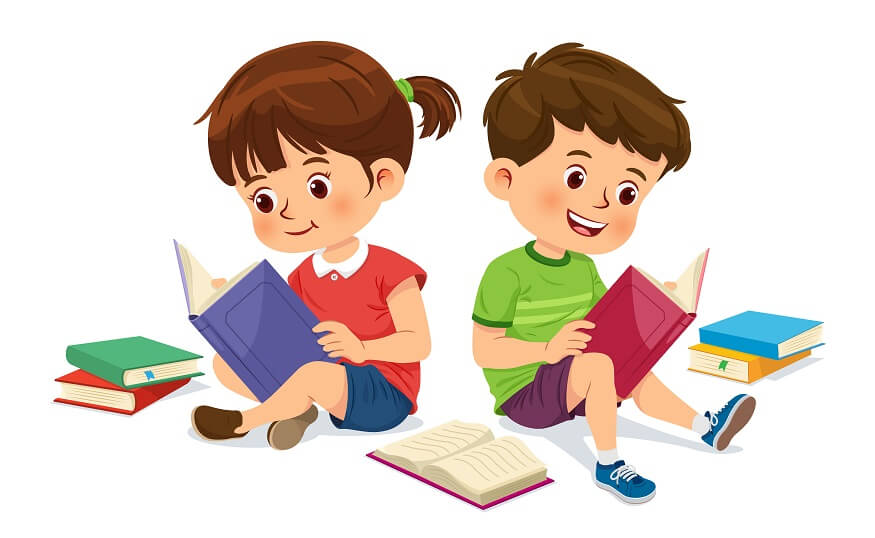School education assumes paramount importance in the growth and development journey of any human being. The formats of schooling have evolved over the years, from gurukul-based schooling to government schools to private schools, open schools, home-schooling, and now even online schooling. While formats might change and evolve, there are no two ways about the importance of school education.
Following are some of the many benefits of school education in the growth and development journey of an individual. Enabling them to lead a happy and fulfilling life.
Benefits of School Education
Communication Skills
We, humans, are social animals. To survive, we need to be able to communicate. Starting from the early childhood days, schools take up the task of developing communication skills among children. Schools teach children how to read, write, and speak in the language they wish to communicate in. Schools lay the foundation with language skills for the children and they acquire additional skills and tools of communication as they grow through the schooling framework. Schools also play the role of teaching children to comprehend and follow the given instructions.
Motor Skills
Starting from early childhood stages, schools play a significant role in the development of motor skills among children. Motor skills involve specific movements of our muscles to perform a certain task, for example grabbing a glass of water and drinking from it. Now, this might sound simple, but it involves thousands of synchronised movements of our muscles for us to be able to take that sip without spilling over. The various activities, games, and sports that children engage in at school contribute to the development of these motor skills.
Social Skills
Unlike the sheltered and familiar environment at home, schools create a social space for children, facilitating the development of essential social skills for children. Children at school need to work with their classmates, whether they like them or not, and accomplish assigned tasks together. Since they spend a significant amount of time with their classmates, they learn to socially interact with others and build relationships with others. Being and working in a group is an essential part of learning how to operate in society. These are key learnings that are required so that children learn how to live and co-exist in a society with others.
General Awareness
As children grow, school education graduates from enabling basic survival skills to building more awareness-based skills. This is where the child begins to learn more about themselves, and the environment and surroundings. Primary and middle-level education begins to focus on creating awareness about a diverse set of things such as:
- Our history & culture. Children learn about our historical evolution, our ancestors, and stories about the evolution of our culture. This gives them a meaning of our cultural existence. They begin to appreciate various aspects of our culture, traditions, and values. Children learn about our ancient heroes and their stories of bravery, leadership, and sacrifice. These stories instil useful morals and values in children and help in building their character and values. Learning history also leaves children with some of their real-life heroes that they choose to associate with.
- Environment and planets. Children learn about the atmosphere, earth, and the exciting world of planets and galaxies. This takes their imagination from the realities of history to the flights of the fantasy world. Such imaginations give rise to creativity as they wander into the world of outer space, astronauts and superheroes.
- Nature, plants and animals. Children also learn about the elements of our nature – our immediate surrounding elements that cohabitate on this planet with us. They learn to appreciate the flora and fauna. Learning about birds and animals as special creatures gives special joy to children.
- Our bodies. Growing children are full of curiosity. They want to know how everything works, including their own body. School education for students brings them answers to these curiosities. They learn to appreciate their bodies which leads them to value them and take appropriate care of the same.
- Our country, state, city, and society. Living in a society, and co-existing with others is an existential reality for all of us. As a result, we need to live by the rules, laws, and norms the society. Schools take up the responsibility to teach children about the constitutional framework, our fundamental rights, and key law provision of which any citizen of the country needs to be aware. Children learn the virtues of social citizenship, and social justice and become aware of their civic responsibilities as a member the society.
Cognitive Skills
During middle and senior school, the focus of schooling moves to develop critical cognitive skills such as critical thinking skills, problem-solving skills, and Decision-Making Skills. These cognitive skills help build independence among growing children. As one of the most important benefits of school education, children not only learn to do things on their own but also to make their own decisions by evaluating alternatives and becoming ready to face the consequences of their decisions. Deciding what is right and what is wrong for us by considering the pros & cons of each available choice.
Builds Morals, Values, Personality and Character
Deciding what is right and wrong needs a moral compass to be instilled in the children. Along with awareness of the surrounding world and an ability to think and decide for ourselves, school education also plays a pivotal role in instilling in children some key moral values and ethics. These are essential to building a strong personality and character which makes them good global citizens.
Develops Skills
Senior secondary school education for students focuses on developing key skills among children. School education instils in children critical life skills and job skills which are essential for them to lead a happy and fulfilling life. By engaging in various curricular and extracurricular activities children develop life skills such as leadership, conflict resolution, emotional intelligence, etc. Schools also expose senior secondary students to various career opportunities and start preparing them for a fruitful career. Schools introduce senior students to various available career options and play the role of a breeding ground for future doctors, engineers, accountants, entrepreneurs, and many other successful professionals.
An effective school education system develops global citizens who are an asset to society and are capable enough to solve social problems such as Hunger, Poverty, Illiteracy, Corruption, and many more.
We at EuroSchool are fully mindful of the criticality school education carries for both parents and children. Euroschool takes this responsibility with complete ownership and takes pride in the quality of global citizens we have delivered as our students over the past so many years.









